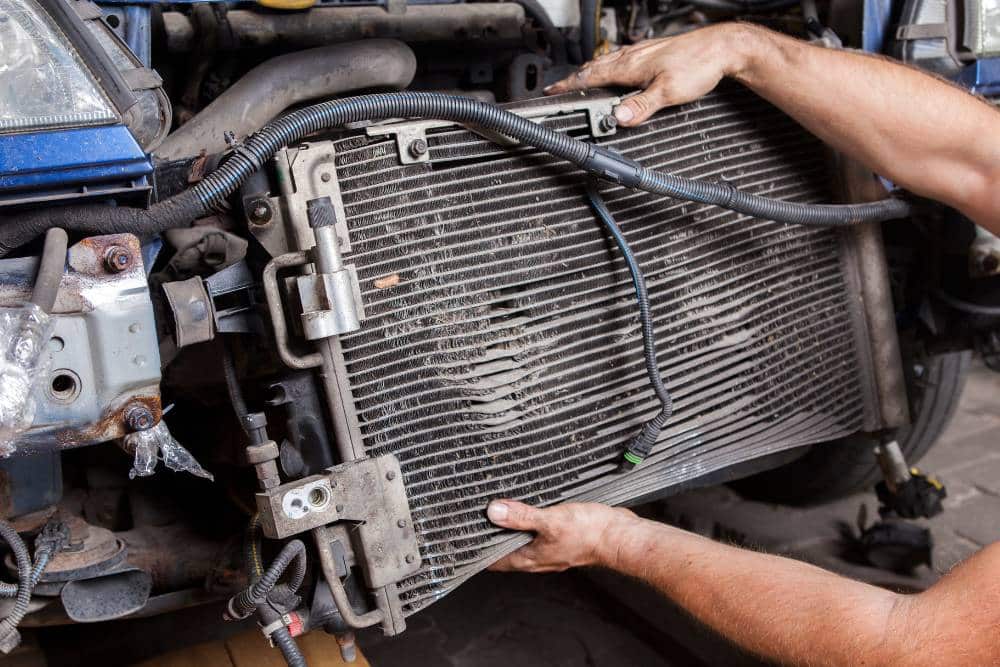The importance of a well-functioning radiator in your vehicle can not be overstated, as the radiator is one of the most crucial components of your engine. A faulty radiator can lead to engine damage, overheating, and even breakdowns.
Let’s explore these causes and provide practical solutions to get your vehicle back on the road.
Causes of Radiator Issues
1. Parasitic Drain
A parasitic drain occurs when an electrical device in your vehicle draws power from the battery, even when the car is turned off. This can cause the battery to drain, leading to starting issues and other problems. Faulty alarm systems, phone chargers, or other accessories can cause it.
We recommend regularly checking for parasitic drains, which can help prevent battery drains. A multimeter can be used to diagnose parasitic drains. If you suspect a parasitic drain, consult a professional mechanic. Don’t let parasitic drains leave you stranded!
2. Leaks
Leaks are a common cause of radiator issues. They can occur due to corrosion, damage, or worn-out hoses. If left unchecked, leaks can cause the coolant to drain, leading to engine overheating and potentially costly repairs.
Leaks can be difficult to detect, but regular inspection can help. Look for signs of leakage, such as green or yellow fluid under the vehicle. Leaks can also cause the coolant level to drop. If you notice any leaks, address them promptly.
3. Faulty Thermostats
A faulty thermostat can prevent the engine from reaching its optimal operating temperature, leading to poor fuel efficiency, reduced performance, and increased emissions.
Faulty thermostats can be caused by wear and tear or corrosion. Regular replacement can help prevent issues.
Thermostats should be replaced every 50,000 miles. If you notice any issues with your thermostat, consult a professional mechanic. Don’t let a faulty thermostat cause problems!
4. Malfunctioning Water Pumps
The water pump circulates coolant through the radiator. A malfunctioning water pump can prevent the coolant from flowing properly, causing the engine to overheat.
Regular maintenance can help prevent water pump failure. Look for signs of wear and tear, such as leaks or corrosion.
Water pumps should be replaced every 50,000 miles. If you notice any issues with your water pump, consult a professional mechanic. Don’t let a malfunctioning water pump cause problems!
5. Low Coolant Levels
Low coolant levels can cause the engine to overheat, leading to damage and potentially costly repairs. Regular checks ensure the coolant level is adequate. Use a high-quality coolant that meets the manufacturer’s specifications.
We recommend checking your coolant levels every 30,000 miles. If you notice any issues with your coolant level, address them promptly. Don’t let low coolant levels cause problems! Regular maintenance can help prevent issues.
Like any other issue with your vehicle, any problem with your radiator should be treated with a sense of urgency, as it affects your vehicle’s overall performance.
If your car exhibits any of these signs, visit our RAC-approved garage in Huddersfield. Book a service with us today!


